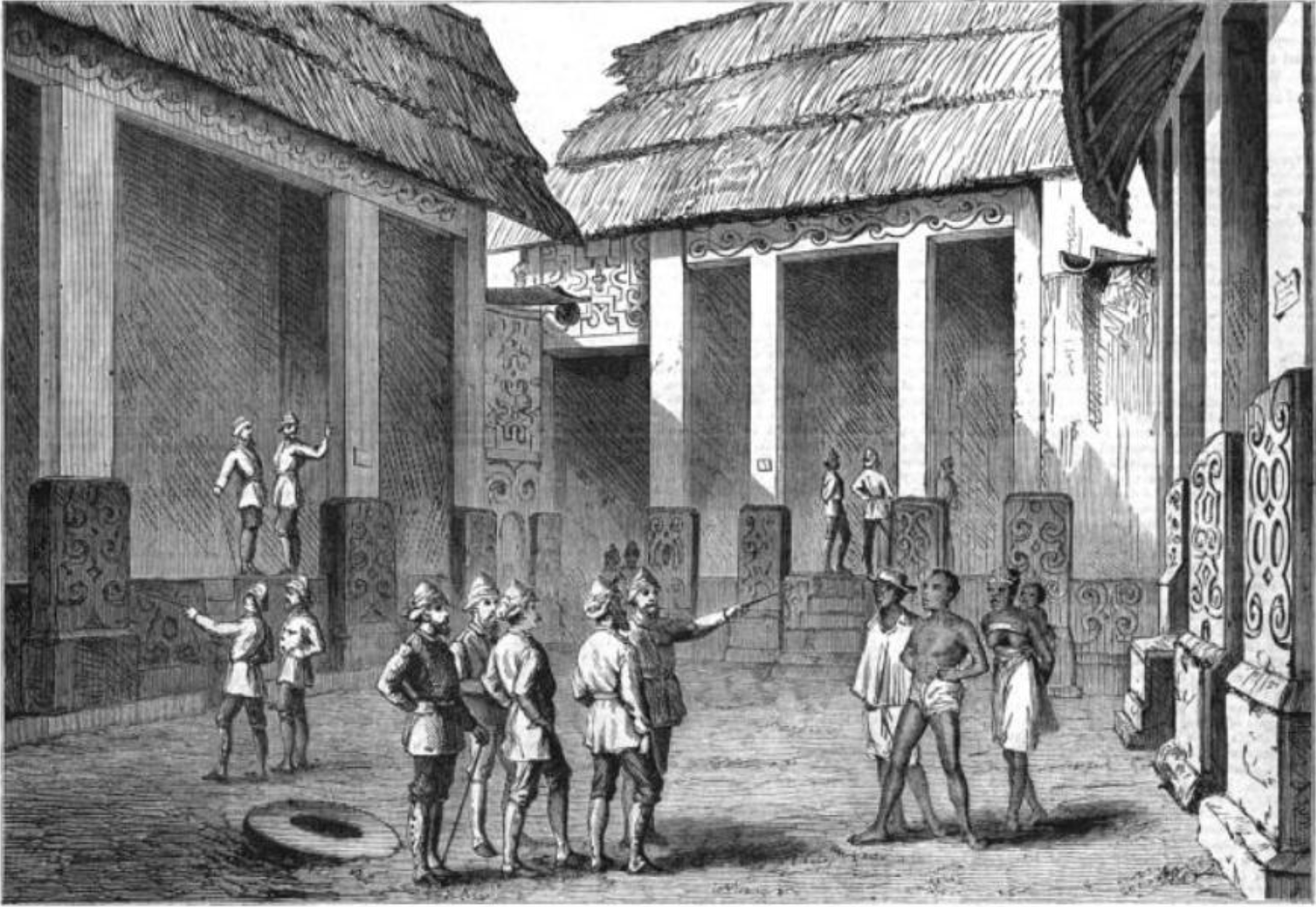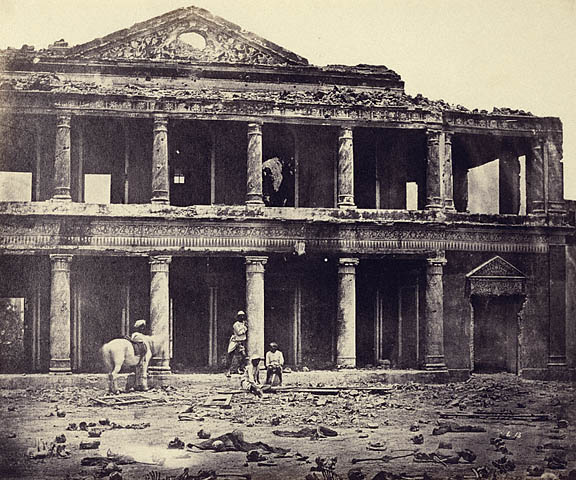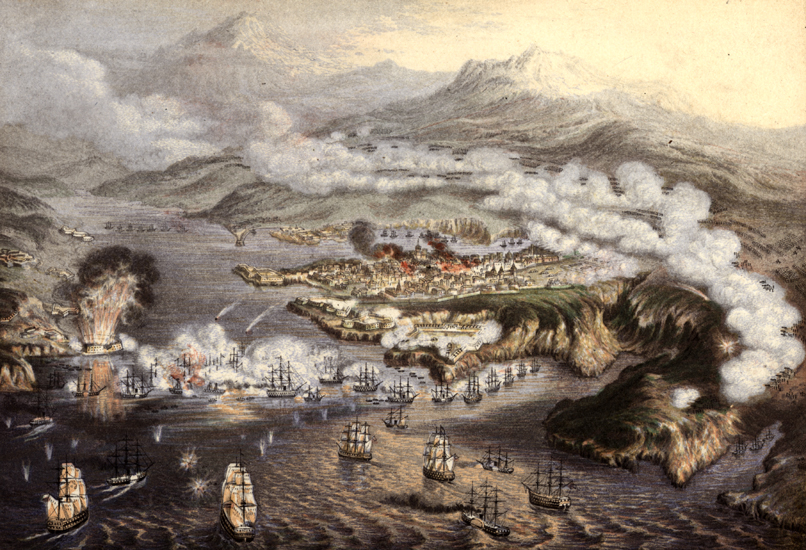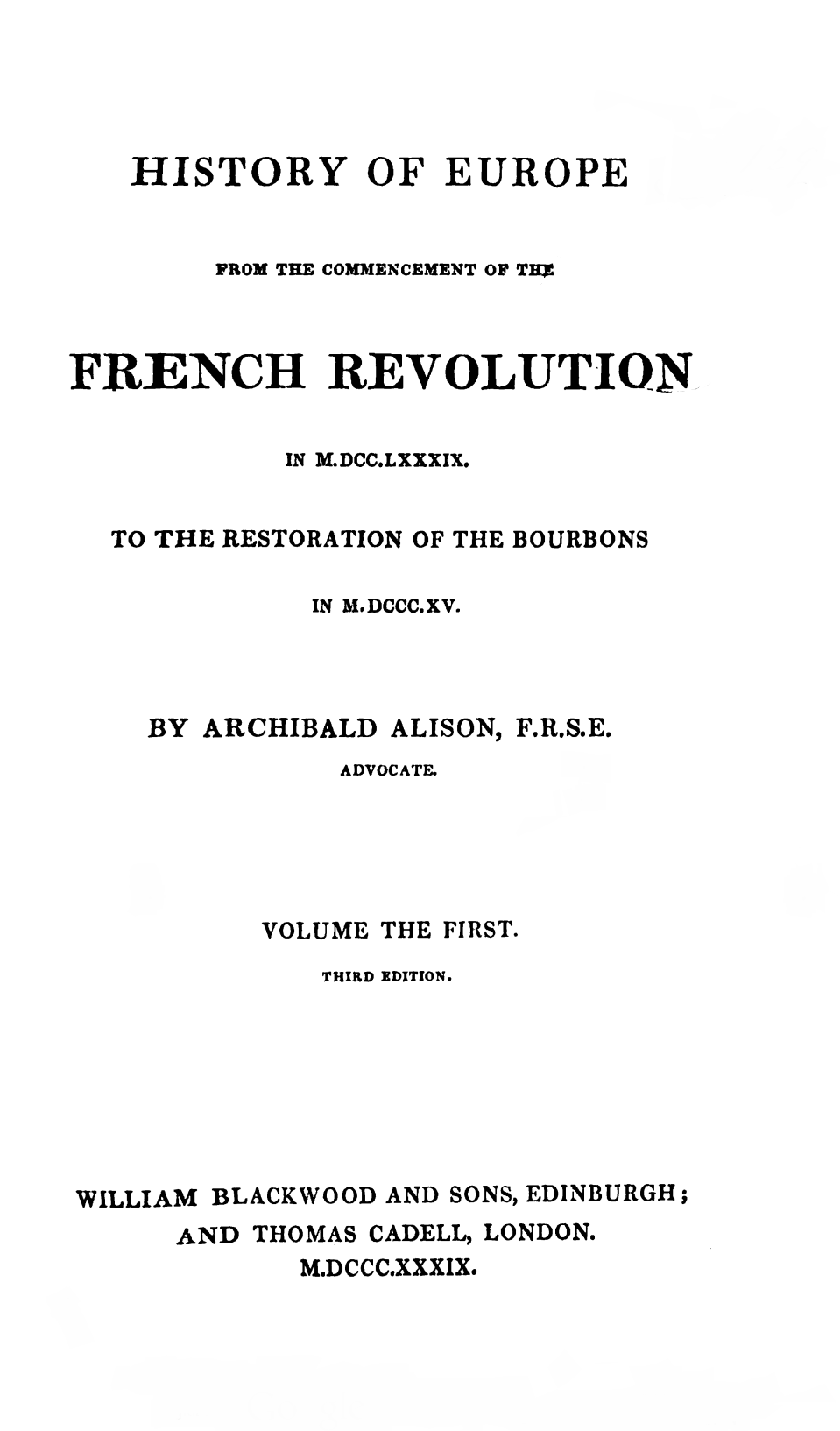|
Sir Archibald Alison, 2nd Baronet
General (United Kingdom), General Sir Archibald Alison, 2nd Baronet (21 January 1826 – 5 February 1907) was a Scottish soldier who achieved high office in the British Army in the 1880s. He was a descendant of the Alison family presented by Francis Galton in ''Hereditary Genius'' (1869) as an example of genius inherited over several generations. Military career Born on 21 January 1826, in Edinburgh, the son of Sir Archibald Alison, 1st Baronet, Archibald Alison, the advocate and historian, and educated at Glasgow University, and Edinburgh University, Alison was Commissioned officer, commissioned into the 72nd Regiment of Foot in 1846. He went on to serve at the Siege of Sevastopol (1854–1855), Siege of Sevastopol during the Crimean War in 1855. He served as Military Secretary to Sir Colin Campbell, 1st Baron Clyde, Colin Campbell during the Indian Rebellion of 1857, Indian Mutiny in 1857, losing an arm at the relief of Lucknow, and was appointed a Companion of the Order of ... [...More Info...] [...Related Items...] OR: [Wikipedia] [Google] [Baidu] |
Edinburgh
Edinburgh ( ; gd, Dùn Èideann ) is the capital city of Scotland and one of its 32 Council areas of Scotland, council areas. Historically part of the county of Midlothian (interchangeably Edinburghshire before 1921), it is located in Lothian on the southern shore of the Firth of Forth. Edinburgh is Scotland's List of towns and cities in Scotland by population, second-most populous city, after Glasgow, and the List of cities in the United Kingdom, seventh-most populous city in the United Kingdom. Recognised as the capital of Scotland since at least the 15th century, Edinburgh is the seat of the Scottish Government, the Scottish Parliament and the Courts of Scotland, highest courts in Scotland. The city's Holyrood Palace, Palace of Holyroodhouse is the official residence of the Monarchy of the United Kingdom, British monarchy in Scotland. The city has long been a centre of education, particularly in the fields of medicine, Scots law, Scottish law, literature, philosophy, the sc ... [...More Info...] [...Related Items...] OR: [Wikipedia] [Google] [Baidu] |
Anglo-Ashanti Wars
The Anglo-Ashanti wars were a series of five conflicts that took place between 1824 and 1900 between the Ashanti Empire—in the Akan interior of the Gold Coast—and the British Empire and its African allies. Though the Ashanti emerged victorious in some of these conflicts, the British ultimately prevailed in the fourth and fifth conflicts, resulting in the complete annexation of the Ashanti Empire by 1900. The wars were mainly due to Ashanti attempts to establish a stronghold over the coastal areas of present-day Ghana. Coastal peoples such as the Fante and the Ga came to rely on British protection against Ashanti incursions. Earlier wars The British fought three earlier wars in the Gold Coast: In the Ashanti-Fante War of 1806–07, the British refused to hand over two rebels pursued by the Ashanti, but eventually handed one over (the other escaped). In the Ga-Fante War of 1811, the Ashanti sought to aid their Ga allies in a war against the Fante and their British allie ... [...More Info...] [...Related Items...] OR: [Wikipedia] [Google] [Baidu] |
Ireland
Ireland ( ; ga, Éire ; Ulster Scots dialect, Ulster-Scots: ) is an island in the Atlantic Ocean, North Atlantic Ocean, in Northwestern Europe, north-western Europe. It is separated from Great Britain to its east by the North Channel (Great Britain and Ireland), North Channel, the Irish Sea, and St George's Channel. Ireland is the List of islands of the British Isles, second-largest island of the British Isles, the List of European islands by area, third-largest in Europe, and the List of islands by area, twentieth-largest on Earth. Geopolitically, Ireland is divided between the Republic of Ireland (officially Names of the Irish state, named Ireland), which covers five-sixths of the island, and Northern Ireland, which is part of the United Kingdom. As of 2022, the Irish population analysis, population of the entire island is just over 7 million, with 5.1 million living in the Republic of Ireland and 1.9 million in Northern Ireland, ranking it the List of European islan ... [...More Info...] [...Related Items...] OR: [Wikipedia] [Google] [Baidu] |
Companion Of The Order Of The Bath
Companion may refer to: Relationships Currently * Any of several interpersonal relationships such as friend or acquaintance * A domestic partner, akin to a spouse * Sober companion, an addiction treatment coach * Companion (caregiving), a caregiver, such as a nurse assistant, paid to give a patient one-on-one attention Historically * A concubine, a long-term sexual partner not accorded the status of marriage * Lady's companion, a historic term for a genteel woman who was paid to live with a woman of rank or wealth * Companion cavalry, the elite cavalry of Alexander the Great * Foot Companion, the primary type of soldier in the army of Alexander the Great * Companions of William the Conqueror, those who took part in the Norman conquest of England * Muhammad's companions, the Sahaba, the friends who surrounded the prophet of Islam Film and television * Companion (Doctor Who), Companion (''Doctor Who''), a character who travels with the Doctor in the TV series ''Doctor Who'' * Compan ... [...More Info...] [...Related Items...] OR: [Wikipedia] [Google] [Baidu] |
Relief Of Lucknow
The siege of Lucknow was the prolonged defence of the British Residency within the city of Lucknow from rebel sepoys (Indian soldiers in the British East India Company's Army) during the Indian Rebellion of 1857. After two successive relief attempts had reached the city, the defenders and civilians were evacuated from the Residency, which was then abandoned. Background to the siege The state of Oudh/Awadh had been annexed by the British East India Company and the Nawab Wajid Ali Shah was exiled to Calcutta the year before the rebellion broke out. This high-handed action by the East India Company was greatly resented within the state and elsewhere in India. The first British Commissioner (in effect the governor) appointed to the newly acquired territory was Coverley Jackson. He behaved tactlessly, and Sir Henry Lawrence, a very experienced administrator, took up the appointment only six weeks before the rebellion broke out. The sepoys of the East India Company's Bengal Preside ... [...More Info...] [...Related Items...] OR: [Wikipedia] [Google] [Baidu] |
Colin Campbell, 1st Baron Clyde
Field Marshal Colin Campbell, 1st Baron Clyde, (20 October 1792– 14 August 1863), was a British Army officer. After serving in the Peninsular War and the War of 1812, he commanded the 98th Regiment of Foot during the First Opium War and then commanded a brigade during the Second Anglo-Sikh War. He went on to command the Highland Brigade at the Battle of Alma and with his " thin red line of Highlanders" he repulsed the Russian attack on Balaclava during the Crimean War. At an early stage of the Indian Mutiny, he became Commander-in-Chief, India and, in that role, he relieved and then evacuated Lucknow and, after attacking and decisively defeating Tatya Tope at the Second Battle of Cawnpore, captured Lucknow again. Whilst still commander-in-chief he dealt with the "White Mutiny" among East India Company troops, and organised the army sent east in the Second Opium War. Historian Adrian Greenwood argued in a 2015 biography of Campbell that he was a much more effective and si ... [...More Info...] [...Related Items...] OR: [Wikipedia] [Google] [Baidu] |
Siege Of Sevastopol (1854–1855)
The siege of Sevastopol (at the time called in English the siege of Sebastopol) lasted from October 1854 until September 1855, during the Crimean War. The allies ( French, Sardinian, Ottoman, and British) landed at Eupatoria on 14 September 1854, intending to make a triumphal march to Sevastopol, the capital of the Crimea, with 50,000 men. Major battles along the way were Alma (September 1854), Balaklava (October 1854), Inkerman (November 1854), Tchernaya (August 1855), Redan (September 1855), and, finally, Malakoff (September 1855). During the siege, the allied navy undertook six bombardments of the capital, on 17 October 1854; and on 9 April, 6 June, 17 June, 17 August, and 5 September 1855. The Siege of Sevastopol is one of the last classic sieges in history. The city of Sevastopol was the home of the Tsar's Black Sea Fleet, which threatened the Mediterranean. The Russian field army withdrew before the allies could encircle it. The siege was the culminating struggle fo ... [...More Info...] [...Related Items...] OR: [Wikipedia] [Google] [Baidu] |
72nd Regiment Of Foot
The 72nd Highlanders was a British Army Scottish regiment, Highland Infantry Regiment of the Line. Raised in 1778, it was originally numbered 78th, before being redesignated the 72nd in 1786. Under the Childers Reforms it amalgamated with the 78th (Highlanders) Regiment of Foot, 78th (Highlanders) Regiment to form the 1st Battalion of the Seaforth Highlanders in 1881. History Early history The regiment was raised in the Western Highlands by Kenneth Mackenzie, 1st Earl of Seaforth, Kenneth Mackenzie, Earl of Seaforth as the Seaforth (Highland) Regiment in January 1778 as an act of gratitude for the restoration of the family Earl of Seaforth, Earldom which had been forfeited during the Jacobite rising of 1715, Jacobite rising of 1715. A corps of 1,130 men was raised of whom 900 were Highlanders and the remainder came from the Lowlands: it was established at Elgin, Moray, Elgin, its first base, in May 1778. In August 1778 the regiment marched to Leith to embark for India – but ... [...More Info...] [...Related Items...] OR: [Wikipedia] [Google] [Baidu] |
Commissioned Officer
An officer is a person who holds a position of authority as a member of an armed force or uniformed service. Broadly speaking, "officer" means a commissioned officer, a non-commissioned officer, or a warrant officer. However, absent contextual qualification, the term typically refers only to a force's ''commissioned officers'', the more senior members who derive their authority from a commission from the head of state. Numbers The proportion of officers varies greatly. Commissioned officers typically make up between an eighth and a fifth of modern armed forces personnel. In 2013, officers were the senior 17% of the British armed forces, and the senior 13.7% of the French armed forces. In 2012, officers made up about 18% of the German armed forces, and about 17.2% of the United States armed forces. Historically, however, armed forces have generally had much lower proportions of officers. During the First World War, fewer than 5% of British soldiers were officers (partly ... [...More Info...] [...Related Items...] OR: [Wikipedia] [Google] [Baidu] |
Edinburgh University
The University of Edinburgh ( sco, University o Edinburgh, gd, Oilthigh Dhùn Èideann; abbreviated as ''Edin.'' in post-nominals) is a public research university based in Edinburgh, Scotland. Granted a royal charter by King James VI in 1582 and officially opened in 1583, it is one of Scotland's four ancient universities and the sixth-oldest university in continuous operation in the English-speaking world. The university played an important role in Edinburgh becoming a chief intellectual centre during the Scottish Enlightenment and contributed to the city being nicknamed the "Athens of the North." Edinburgh is ranked among the top universities in the United Kingdom and the world. Edinburgh is a member of several associations of research-intensive universities, including the Coimbra Group, League of European Research Universities, Russell Group, Una Europa, and Universitas 21. In the fiscal year ending 31 July 2021, it had a total income of £1.176 billion, of which £3 ... [...More Info...] [...Related Items...] OR: [Wikipedia] [Google] [Baidu] |
Glasgow University
, image = UofG Coat of Arms.png , image_size = 150px , caption = Coat of arms Flag , latin_name = Universitas Glasguensis , motto = la, Via, Veritas, Vita , mottoeng = The Way, The Truth, The Life , established = , type = Public research universityAncient university , endowment = £225.2 million , budget = £809.4 million , rector = Rita Rae, Lady Rae , chancellor = Dame Katherine Grainger , principal = Sir Anton Muscatelli , academic_staff = 4,680 (2020) , administrative_staff = 4,003 , students = () , undergrad = () , postgrad = () , city = Glasgow , country = Scotland, UK , colours = , website = , logo ... [...More Info...] [...Related Items...] OR: [Wikipedia] [Google] [Baidu] |
Sir Archibald Alison, 1st Baronet
Sir Archibald Alison, 1st Baronet, (29 December 179223 May 1867) was an England-born Scottish advocate (attorney) and historian. He held several prominent legal appointments. He was the younger son of the Episcopalian cleric and author Archibald Alison. His elder brother was the physician and social reformer William Alison. Background He was born at the parsonage at Kenley, Shropshire, to the Rev. Archibald Alison and his wife Dorothea Gregory, daughter of John Gregory, and granddaughter of James Forbes, 17th Lord Forbes. In 1800 his parents moved the family back to Edinburgh, as his father thought that he could give his sons a better education and more independent careers in Scotland. After studying under a private tutor, and at the University of Edinburgh, he was, in 1814, admitted to the Faculty of Advocates, at which he ultimately attained some distinction, becoming in 1834 Sheriff of Lanarkshire. In 1853, he received an Honorary Doctorate of Civil Law by the Universit ... [...More Info...] [...Related Items...] OR: [Wikipedia] [Google] [Baidu] |








